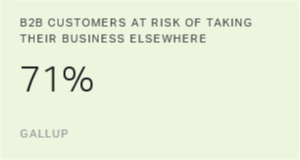PRINCETON, NJ -- Consumer perceptions of the U.S. economy are similar to those of the prior week, and the percentage of Americans saying economic conditions are getting better remains 25 points higher than a year ago. Still, job creation shows no weekly improvement and remains 14 percentage points below a year ago, while consumer spending is also unchanged from last week -- but 40% below the same week last year.
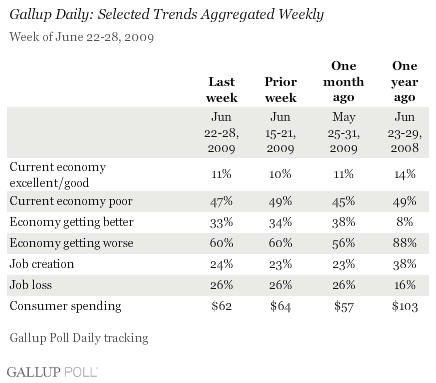
Over the period of June 22-28, 47% of Americans rated the economy "poor," essentially the same as the 49% from the prior week. This percentage is about the same as that of a month ago (45%) and not much different than the ratings of a year ago (49%).
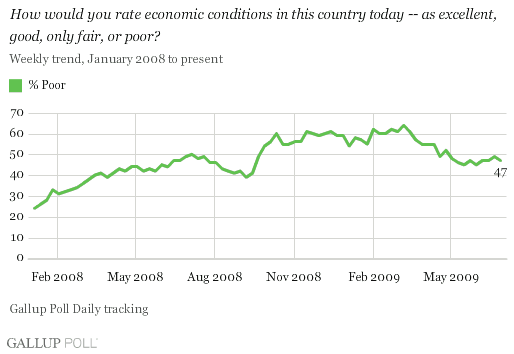
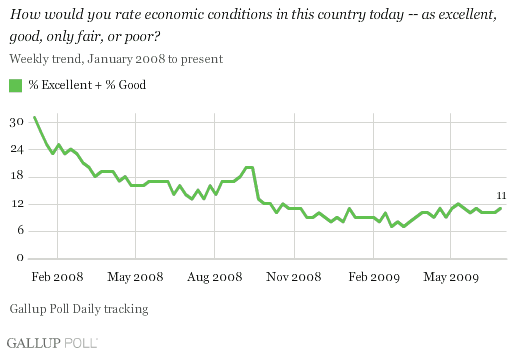
Consumers' expectations for the economy's direction were unchanged over the past week, as the percentage of Americans saying economic conditions are "getting worse" remained at 60%. This is slightly worse than a month ago (56%). However, expectations remain much improved -- 28 points -- over those of a year ago, when 88% said things were "getting worse."
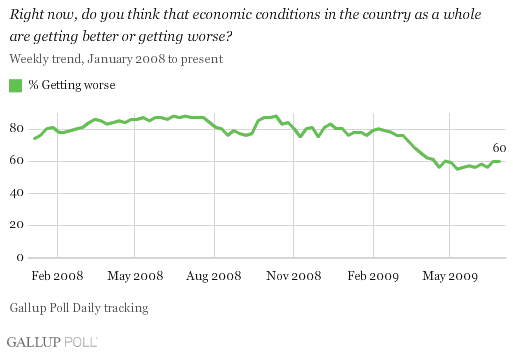
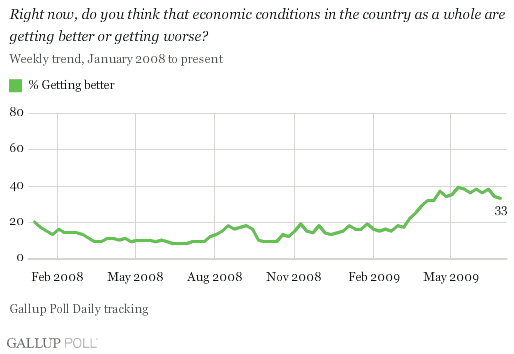
Job creation continued to be weak last week, as the percentage of employees saying their companies were hiring was essentially unchanged at 24%. This is basically the same level of job creation as a month ago. However, it is 14 points below that of the same week a year ago.
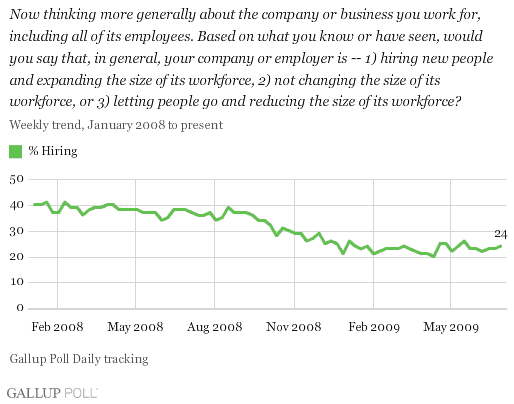
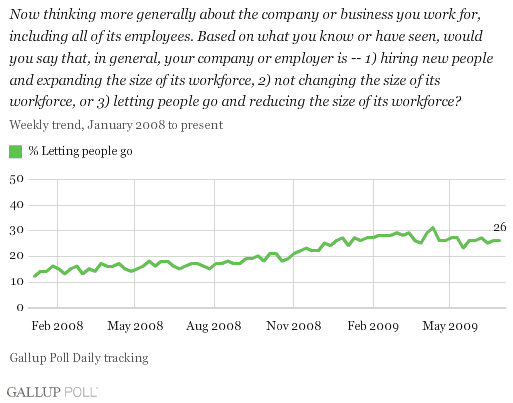
Americans reported spending an average of $62 per day in stores, restaurants, gas stations, and online last week -- more or less unchanged from the prior week. However, today's consumer spending continues to run 40% below the comparable ratings of a year ago. (Gallup's spending data are based on Americans' self-reports of the total amount of money they spent the prior day on purchases other than a home, a motor vehicle, or their normal monthly bills.)
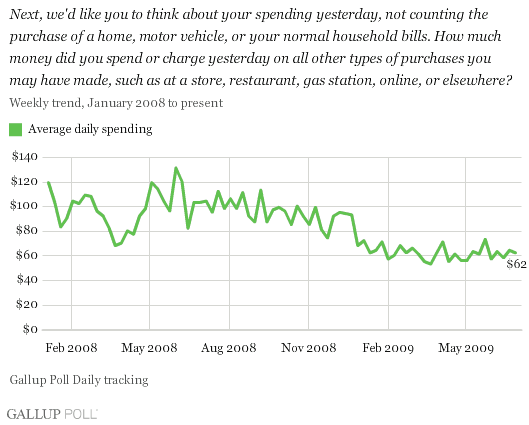
Looking back to this time a year ago, it is not hard to understand why Americans were so much more pessimistic than they are now. Gas prices were approaching a record $4 a gallon at the pump. Housing prices were crashing. And while most economists had yet to officially recognize it, many Americans realized the U.S. economy was already in recession. Although the economy remains mired in a recession, and Americans have experienced many difficulties over the past 12 months, it is not surprising that only 60% of Americans now say the economy is getting worse, compared with the 88% of the same time a year ago.
On the other hand, the failure of consumer spending to improve over recent months -- even as the consumer mood has surged -- suggests that current spending levels could reflect the "." Consumer spending levels have been relatively steady during recent months, as Americans continue to spend 40% less than a year ago. This percentage gap in spending is likely to decline in the months ahead as the comparables from a year ago decline, but the actual level of consumer expenditures could remain near recent levels. In fact, when one in five Americans say they worried "yesterday" that they were spending too much -- even with today's low consumer spending levels -- current spending levels could easily reflect the "new normal" for some time to come.
This potential new normal for spending is only reinforced by Gallup's job creation and job loss measures that continue to show little improvement in job market trends. For that matter, the current consensus forecast is that the June unemployment rate will increase to 9.6% when reported July 2. In sum, continued increases in the unemployment rate combined with recent weak consumer spending trends imply this could be an anemic back-to-school sales season -- just the opposite of what most retailers need right now.
Survey Methods
For ���۴�ýPoll Daily tracking, ���۴�ýinterviews approximately 1,000 national adults, aged 18 and older, each day. The ���۴�ýconsumer perceptions of the economy and consumer spending results are based on random half-samples of approximately 500 national adults, aged 18 and older, each day. The ���۴�ýjob creation and job loss results are based on a random half sample of approximately 250 current full- and part-time employees each day. For the total samples of these surveys, one can say with 95% confidence that the maximum margin of sampling error is ±3 percentage points.
Interviews are conducted with respondents on land-line telephones (for respondents with a land-line telephone) and cellular phones (for respondents who are cell-phone only).
In addition to sampling error, question wording and practical difficulties in conducting surveys can introduce error or bias into the findings of public opinion polls.
